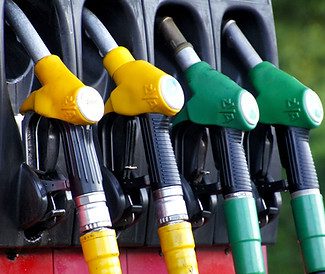


LIGHT DISTILLATES
Light distillates are refined oil products produced by fractional distillation at the top of the distillation tower. Light distillates have the lowest boiling points, consist of short hydrocarbon chains, and are flammable substances which can be in either a gaseous or liquid state.
LPG
Liquefied Petroleum Gas (LPG) is a mixture of hydrocarbon gases, obtained as a by-product of natural gas processing as well as manufactured during fractional distillation of crude oil. Its high-energy content and its ability to burn readily in air makes it an excellent ignition fuel for vehicles, for heating, cooking and used as petrochemical feedstock.
LPG consists of a range of hydrocarbon gases such as propane (C3), butane (C4), and isobutene (i-C4) that are liquefied through pressurisation.
BBP supplies LPG as separate individual gases or in standard combination ratios suitable for different purposes.
MOTOR GASOLINE
Motor Gasoline (also known as Petrol) is a transparent, higher-valued petroleum derivative primarily used as fuel in spark-ignited internal combustion engines and the most commonly used transport fuel used in cars, trucks, boats, motorbikes etc. (Gasoline – Americas | Petrol – UK/EU/Asia | Premium Motor Spirit (PMS/Mogas) – Nigeria)
The characteristic of a particular gasoline blend to resist igniting too early (which causes knocking and reduces efficiency in reciprocating engines) is measured by its octane rating, which is produced in several grades. The octane number is actually the simple average of two different octane rating methods—Motor Octane Number (MON) and Research Octane Number (RON)—that differ primarily in the specifics of the operating conditions. The higher an octane number, the more stable the fuel.
Three main grades of gasoline are sold at retail gasoline re-fuelling stations:
-
Regular (the lowest octane fuel–generally 87)
-
Mid-grade (the middle range octane fuel–generally 89–90)
-
Premium (the highest octane fuel–generally 91–94)
Alternate names for these grades of gasoline include such as unleaded, super, or super premium, but they all indicate the octane rating, which reflects the antiknock properties of gasoline. Higher octane ratings result in higher prices.
Difference between Regular & Premium Gasoline:
-
Regular unleaded gas (RUG) – is the most common type of gas used around the world. It’s a by-product of crude oil that is highly flammable, with an octane rating of 87.
-
Premium gas- is often referred to as “high octane” because it has a 90 or higher octane rating. It’s an unleaded, crude oil by-product with detergent additives and less polluting characteristics.
-
Premium gas can withstand pre-ignition/knocking better when compared to RUG, hence, a higher octane rating to signify this capability.
-
Suitability - Regular gas burns faster and is suitable for low compression engines or low performance cars that do not require a lot of power. Premium gas burns slowly and is recommended in high compression engines found in high performance cars.
NAPHTHA
Naphtha refers to refined, partly refined, or an unrefined low-to-medium boiling, intermediate hydrocarbon petroleum distillate fraction used in solvents, for steam cracking and as feedstock for petrochemical production. Naphtha is also primarily used as a base material for the production of high-grade gasoline by means of the catalytic reforming process.
Light Naphtha (Low-boiling naphtha/Light Straight-Run Naphtha) is another hydrocarbon distillate/NGL fraction that is also interchangeable with natural gasoline and lease condensates.
Heavy naphtha is a distillation cut primarily made up of material roughly the same density as finished gasoline. The heavy naphtha distillation cut is typically sent to the reformer to upgrade its quality to make it suitable as a gasoline blendstock.
Light naphtha (less dense) boils at between 35°C and 130°C and has a higher paraffin content than Heavy naphtha (fairly dense), which boils between 130°C and 210°C and contains a lot of naphthenes and aromatics. Compared to heavy naphtha, which is often further refined, light naphtha is the least processed product of a refinery.






